
IEEE Madison Section - 2007 Meeting Archive
Institute of Electrical and Electronics Engineers

| Speaker: | Tony Locker, P.E., I-Gard |

|
| Location: |
Rocky Rococo's Pizza 7952 Tree Lane (Madison Beltline Hwy. at Mineral Pt. Rd.), 608.829.1444 |
|
| Menu: | Pizza buffet, salad and soft drinks | |
| Lunch Price: | $10.00 (free for UW-Madison Student Branch members) | |
| RSVP: |
by January 15th to Les Schroeder via email or call 608.224.0664
|
Non-member guests are always welcome!
As Power Reliability and Arc Flash Hazards become more prevalent in the next decade and beyond, High Resistance Grounding (HRG) systems have become the grounding system of choice by many professionals. Once only used in Industrial applications, HRG systems have flourished in other markets, such as commercial and institutional. However, they are not perfect systems. This presentation will discuss why HRG systems were first developed and how modern relays are helping an almost 50 year old practice solve today's challenges.
Tony Locker received a BSEE from Rose-Hulman Institute of Technology and a MSEE from Georgia Institute of Technology. He is presently Director, Business Development with I-Gard, Cincinnati, Ohio, where he is responsible for providing technical seminars and application assistance on resistance grounding and ground fault protection in the USA. Prior to joining I-Gard in 2005, he was Vice President - Engineering with Post Glover Resistors. Previously, he was Director of Engineering at Power Engineering Technology. His background includes leading design teams and managing installations of numerous multi-million dollar control and power systems for data centers, industrial plants, cogeneration facilities, and utilities. Before Power Engineering Technology, he was a R&D engineer for Square D Company.
Mr. Locker is active in the Industry Applications and Power Engineering Societies of IEEE, where he serves on several Subcommittees and Working Groups, as well as NSPE. He is a registered Professional Engineer in Ohio and has two patents.
More info on Resistance Grounding can be found at: http://www.i-gard.com/technologyinfo.htm
| Speaker: | Theodore P. Bohn, Researcher, Argonne National Laboratory's Center for Transportation Research |
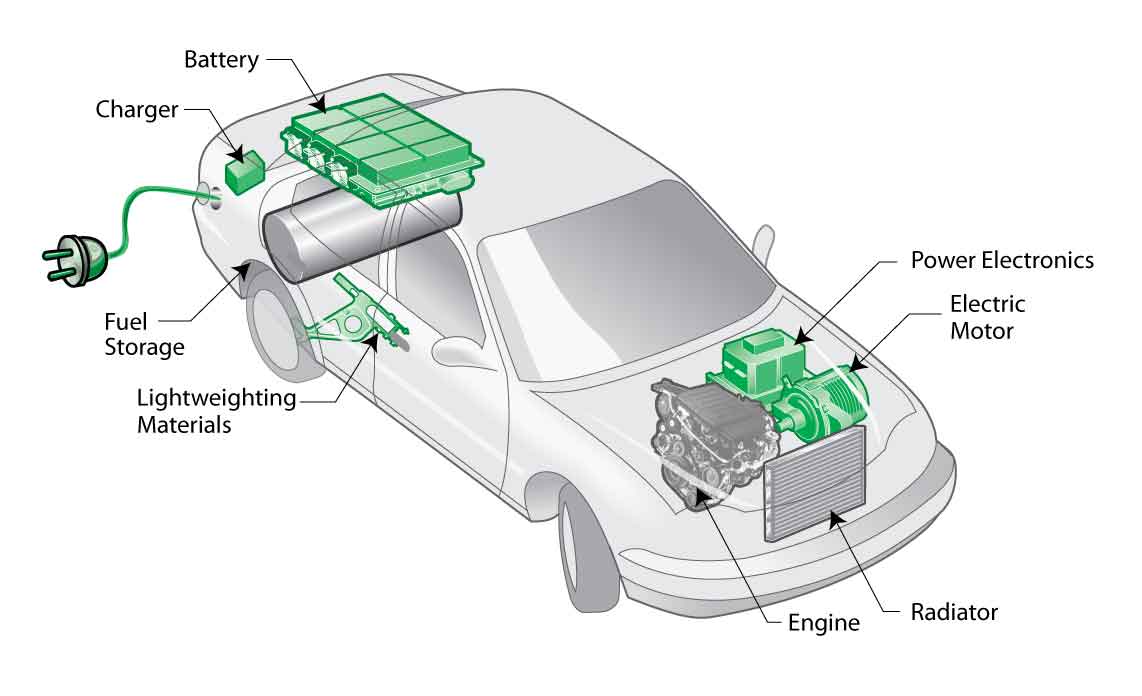
|
| Location: |
Rocky Rococo's Pizza 7952 Tree Lane (Madison Beltline Hwy. at Mineral Pt. Rd.), 608.829.1444 |
|
| Menu: | Pizza buffet, salad and soft drinks | |
| Lunch Price: | $10.00 (free for UW-Madison Student Branch members) | |
| RSVP: |
by February 13th to Les Schroeder via email or call 608.224.0664
|
Non-member guests are always welcome!
Electric vehicles have been a part of the American transportation landscape for over a century now. Hybrid vehicles have also come and gone in various forms, having recently been hailed as a bridge to 'the next transportation paradigm'. So called 'Plug-in Hybrid Vehicles' have also recently moved into the spotlight as research has shifted to affordable, reliable, large capacity electrical energy storage with the key goal of displacing imported petroleum with electricity from 'other sources.' These other sources may be carbon free renewable energy (wind, solar, hydro, etc), or night-valley load leveling of conventional coal fired electrical plants. This presentation discusses the (recent) history, benefits and challenges of plug-in hybrid approaches as well as state of the art in the required components.
As an alumnus of UW-Madison, Ted Bohn has been an electrical engineer at Argonne National Laboratory's Center for Transportation Research for the past 8 years. Prior to this role, he worked as a consultant to automotive OEMs and Columbia ParCar, as well as a role as Technical Specialist designing experimental apparatus at Fermi National Accelerator Laboratory. He and his colleagues at Argonne Lab investigate limitations of advanced powertrain topologies and examine opportunities to exploit advantages of new technologies applied to hybrid vehicles. He also has the fortune of being a visiting scholar at UW-Madison and works closely with the faculty and WEMPEC students on research associated with hybrid vehicle electric machines and power electronics. Many of you who know him can identify with his passion for sustainability and renewable energy issues.
| Speaker: | Prof. Todd Allen, UW Department of Engineering Physics |
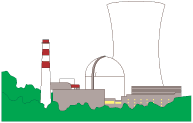
|
| Location: |
Univ of Wisc-Mechanical Engineering Building Room 101 1513 University Ave. Reactor Supervisor's phone: 608-262-3392 Meet in the lobby of the Mechanical Engineering Building, across from Lot 17 |
|
| Parking: |
There is visitor parking available at Lot 17 - $5.00 for a half day pass. CAR POOLING IS ENCOURAGED! |
|
| Menu: | Lunch will not be provided with this tour, but an informal gathering will take place at 11:45 at the Deli in the newly remodeled lobby of Engineering Hall (this is the big building immediately behind the odd-looking fountain). We can walk from Engineering Hall to the Mechanical Engineering building at 12:50. | |
| RSVP: |
by March 1st to Les Schroeder via email or call 608.224.0664 NOTE: this tour is limited to 30 persons! You must provide your name and organization for a security check when RSVPing! |
Non-member guests are always welcome!
Note: Attendees will need to provide Government Identification (Wisconsin driver's license or passport) in order to tour the Reactor. The UW will do an advance check on all individuals attending, thus an early RSVP is required. These verifications are required and no last minute additions will be possible.
A renaissance in nuclear energy appears to be taking hold - over 30 new reactors are currently being considered for license applications and construction in the next 10-15 years. If completed, this would represent a 30% increase in the number of reactors and closer to 40% increase in installed capacity. The University of Wisconsin, Department of Engineering Physics, will host a tour of their reactor for the IEEE.
| Speaker: | Joseph W. Boucher, Neider & Boucher, S. C. |

|
| Location: |
Rocky Rococo's Pizza 7952 Tree Lane (Madison Beltline Hwy. at Mineral Pt. Rd.), 608.829.1444 |
|
| Menu: | Pizza buffet, salad and soft drinks | |
| Lunch Price: | $10.00 (free for UW-Madison Student Branch members) | |
| RSVP: |
by April 16th to Les Schroeder via email or call 608.224.0664
|
Non-member guests are always welcome!
Mr. Boucher will discuss the legal issues that arise along the time line from business idea to exit. Legal issues such as intellectual property protection, business and domain names and what entity to choose will be addressed. In addition, there will be a brief discussion of fiduciary duty and governance.
Joseph W. Boucher is a founding shareholder of the Madison law firm of Neider & Boucher, S.C. Mr. Boucher is also a Certified Public Accountant. Mr. Boucher is a co-drafter of the original Chapter 183 for LLCs, the amendments to Chapter 183, the Next Economy Legislation of 2002, and the limited liability partnership law. He is a co-author of Organizing a Wisconsin Business Corporation and the LLC's and LLP's: a Wisconsin Handbook. He co-authored an article in the September 2005 Wisconsin Lawyer, Vol 78, no. 9, on the Gottsacker case; the first Wisconsin case on limited liability companies.
For more information see http://www.neiderboucher.com.
| Speaker: | Paul Meier, PhD, University of Wisconsin Energy Institute |
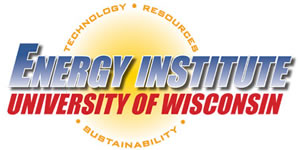
|
| Location: |
Rocky Rococo's Pizza 7952 Tree Lane (Madison Beltline Hwy. at Mineral Pt. Rd.), 608.829.1444 |
|
| Menu: | Pizza buffet, salad and soft drinks | |
| Lunch Price: | $10.00 (free for UW-Madison Student Branch members) | |
| RSVP: |
by May 14th to Les Schroeder via email or call 608.224.0664
|
Non-member guests are always welcome!
Paul Meier will use the MyPower simulation tool to discuss alternatives for satisfying Wisconsin's future electric demand, while considering impacts on greenhouse gas emissions, conventional pollutants, electric reliability and customer costs. MyPower is an electric utility production simulation which uniquely blends research, education, and public outreach. The web-based program simulates electric generation resource planning, evaluating existing and proposed technologies (e.g., base-load power plants, intermittent renewables, energy efficiency, pollution controls), while providing continuous feedback on the system cost and compliance with emission limits, portfolio standards, and planning reserve margins. A game-like interface creates entertaining educational opportunities, while the possibility of networking many users may uniquely enable detailed research of national energy policies.
Paul Meier is the director of the Energy Institute at the University of Wisconsin - Madison. The Institute works to comprehensively address energy issues by fostering interdisciplinary research; organizing education and outreach programs, and developing state, national and international collaborations. Paul's research focuses on integrated resource planning and climate change policy for electric utilities. Paul has worked with industry, government, and public interest groups on energy and environmental issues since 1995. He received a B.S. in Civil Engineering from Purdue University, an M.S. in Environmental Systems Engineering from Clemson University, and a Ph.D. through the Nelson Institute for Environmental Studies at UW - Madison.
The MyPower simulation tool can be viewed by pointing your Shockwave enabled browser at: http://www.energy.wisc.edu/energyinst/my_power_beta_ess.html or by pointing at: http://www.energy.wisc.edu/programs/ and clicking the MyPower Simulator link.
| Speaker: | Mitch Bradt, PE, University of Wisconsin Dept. of EPD |

|
| Location: |
Rocky Rococo's Pizza 7952 Tree Lane (Madison Beltline Hwy. at Mineral Pt. Rd.), 608.829.1444 |
|
| Menu: | Pizza buffet, salad and soft drinks | |
| Lunch Price: | $10.00 (free for UW-Madison Student Branch members) | |
| RSVP: |
by September 17th to Les Schroeder via email or call 608.224.0664
|
Non-member guests are always welcome!
The wind generation market is growing at the rapid rate of 27% annually. It is possible that a national renewable energy standard could emerge advocating 20 to 30% of all energy consumed in the US be provided by renewable resources by the year 2030. Wind generation technology has significantly improved in recent years in terms of increasing the harvest of wind energy, exploiting low wind speed sites, and ameliorating the concerns of reactive power flow.
What is meant by an asynchronous generator; or a doubly-fed induction generator? How do the machines of that are utilized in wind turbines differ from conventional generators at a typical thermal power plant? What are the electrical behaviors for different machines? An brief introduction to the mechanical and electro-mechanical conversion process will be presented for several common wind energy conversion systems. It is the intention that this presentation be the first of a three meeting series; the second and third of which will include a tour of an operating wind farm and a wind turbine manufacturing facility.
Mitch Bradt is a certifiable Wind Geek. He is a Program Director at the University of Wisconsin's Department of Engineering Professional Development, where he develops and delivers continuing engineering education for practicing engineers. He has worked in the design of substation protection and control systems and the application of power electronics at a utility scale. He has also worked in product development and R&D for the aerospace industry while serving in the U.S. Air Force. He received the MSEE from UW-Madison and the BSEE from Marquette University.
| Speaker: | Dane County Sheriff's Office |
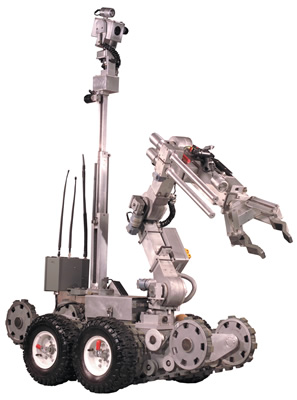
|
| Location: |
Rocky Rococo's Pizza 7952 Tree Lane (Madison Beltline Hwy. at Mineral Pt. Rd.), 608.829.1444 |
|
| Menu: | Pizza buffet, salad and soft drinks | |
| Lunch Price: | $10.00 (free for UW-Madison Student Branch members) | |
| RSVP: |
by October 15th to Les Schroeder via email or call 608.224.0664
|
Non-member guests are always welcome!
Two deputies from the Dane County Bomb Squad will demonstrate and discuss their robot. The robot features three cameras and multiple-mission tool/sensor mounts with plug and play capabilities. The manipulator arm has seven degrees of freedom to ensure optimum dexterity. The articulated tracks enable the robot to climb stairs, obstacles and rough terrain. The robot can be controlled via three different data links-fiber optic cable, radio (wireless) or via a hard-tether cable. The robot was purchased in 2003 with a Domestic Preparedness Program grant.
| Speaker: | Tom Kaminski and Ken Walz |
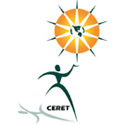
|
| Location: | MATC Truax Campus, Room 67 at the North End of the Center Wing (see parking permit for details - you must print this permit to park!) | |
| Menu: | "Build your own lunch" Deluxe Deli Sandwich Bar, cookies & soft drinks catered by MATC | |
| Lunch Price: | $10.00 (free for UW-Madison Student Branch members) | |
| RSVP: |
by November 12th to Les Schroeder via email or call 608.224.0664
|
Non-member guests are always welcome!
Tom Kaminski and Ken Walz will present a short program at MATC on Solar Collector testing and Renewable Energy Education programs. Ken Walz worked with the Consortium for Education in Renewable Energy Technologies (CERET) established in part by a $500,000 National Science Foundation grant. Through CERET, MATC has developed a Renewable Energy Technology Certificate designed to give people interested in renewable energy a solid overview. All the courses are available online.
Tom Kaminski, an IEEE member since 1972, will talk about the Solar Thermal Collector testing program at MATC funded, in part, by a Wisconsin Focus on Energy grant to MATC and the Solar Lab at UW-Madison College of Engineering. The testing program developed a testing facility to test solar hot water collectors in Northern climates using ASHRAE 93 test methods in use at the Solar Ratings and Certification Corporation in Florida. In addition to testing solar collector performance, the grant developed new test methodologies that promise accelerated testing and testing in other than full sun conditions. A tour of MATC's solar test facility and other renewable energy sites (biodiesel, for example) will be available to those interested after the meeting.
| Speaker: | Colleen F. Moore, Professor of Psychology at the University of Wisconsin-Madison | |
| Location: |
Rocky Rococo's Pizza 7952 Tree Lane (Madison Beltline Hwy. at Mineral Pt. Rd.), 608.829.1444 |
|
| Menu: | Pizza buffet, salad and soft drinks | |
| Lunch Price: | $10.00 (free for UW-Madison Student Branch members) | |
| RSVP: |
by December 17th to Les Schroeder via email or call 608.224.0664
|
Non-member guests are always welcome!
Pollution has negative effects on behavioral development. Most pollutants are inequitably distributed in society. I will talk about the behavioral health impacts of exposure to two pollutants: lead (Pb) and noise. There are social inequities in exposure to both of these pollutants. Because exposure to multiple risk factors yields a higher than expected chance of a child developing special needs, environmental inequities are a concern. Finally, I will briefly describe how government policies are failing to address the socio-economic and racial/ethnic disparities in exposure to both noise and lead. In addition, I will describe the risk assessment used by the Consumer Product Safety Commission to decide on cutoffs for lead in children's crayons. I will describe the judgment calls and subjective values embedded in the risk assessment.
Colleen F. Moore is Professor of Psychology at the University of Wisconsin-Madison, where she has been a member of the faculty since 1978. She received her Ph.D. from the University of Illinois at Champaign-Urbana in Psychology, with emphasis on Developmental Psychology and a minor in quantitative research methods. She currently teaches graduate courses in the design of psychological experiments and developmental psychology. She has been teaching an undergraduate course on the Psychology of Environmental Issues for 10 years. Her research currently addresses several topics including prenatal influences on later behavior (in collaboration with Prof. Mary Schneider), and how environmental attitudes are related to risk perceptions, ethical reasoning, and other aspects of judgment and decision making.